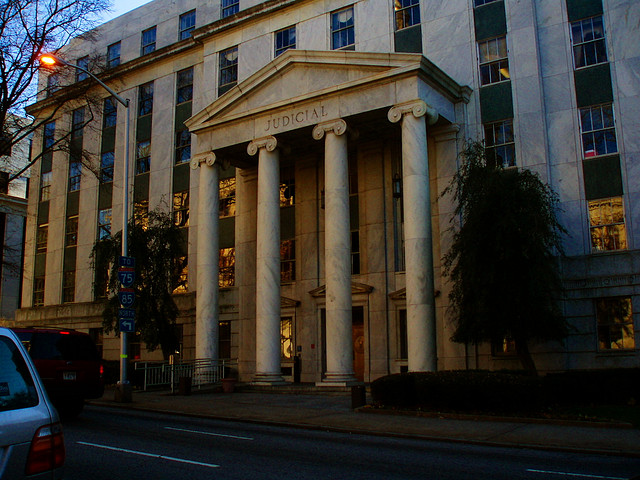Two New Justices on the Ga. Supreme Court? Why Would the Governor Make Such a Move?
Jim Galloway, in the Atlanta Journal’s Political Insider Blog, reports that the Governor is formulating a push in next year’s session of the legislature to increase Georgia’s seven-member Supreme Court by two justices.
Mr. Galloway opines that the governor’s move could expand his influence beyond his eight year tenure and compares a potential Franklin Roosevelt’s push, during the depression, to “pack” the court with like-minded Supreme Court justices. Such is an interesting take on the Gov.’s move. However, I don’t know that the comparison is necessarily apt. A presidential appointment certainly has the potential to expand a president’s influence beyond his own term. After all, United States Supreme Court justices have lifetime appointments. Also, the United States Supreme Court hears issues, in the aggregate, that are likely to shape the direction of public policy. While there are certain cases like that before the Georgia Supreme Court, that court also takes on its fair share of routine criminal and civil matters. Again, it’s an interesting theory. But I have never thought of George’s appellate courts as an extension of the governors who appointed the justices that sit on it. Perhaps I haven’t thought of it enough.
While the governor may have some hand in creating these new judgeships, his appointment would not extend for life. Georgia Supreme Court justices seek reelection at the end of their term. Though incumbency has its benefits, particularly in judicial elections. Interestingly, the Court of Appeals was expanded by three judges in the most recent legislative term. From an initial field of nominees of approximately 200, approximately 100 applicants remain.
Mr. Galloway reports that two “inducements” are on the table to increase the number of Supreme Court justices by two. There is a promise to build a new judicial building as well as talk of reducing the jurisdiction of the state Supreme Court. That jurisdiction is already significantly narrow. And it seems strange that the Supreme Court would undergo a historic expansion as part of a package deal to reduce the court workload. Also, it is difficult to imagine that either court would like such a proposal. For the Supreme Court, loss of jurisdiciton is a loss of power.
For the Court of Appeals, increased jurisdiction brings with it an increased caseload. It also seems odd that there would be a push to potentially increase the workload of the Court of Appeals. The Georgia Court of Appeals is known as one of the busiest if not the busiest intermediate appellate courts in the nation. The Georgia Court of Appeals hears on average about 3200 cases per year over the last five years. That workload means that each judge has a caseload of approximately 280. The addition of three Court of Appeals judges will significantly decrease the workload of each judge and probably increase the quality of opinions being authored as judges will have more time to spend on each case. By contrast, the seven justices on the Supreme Court here fewer direct appeals and have a good bit of discretion over their caseload where petitions come before them. I’m certainly not in the loop for any of this, but I wonder what category of cases would be taken away from the Supreme Court.
I will be interested to see how this all falls out and what the debate is about these two new additions. From a lawyer’s perspective, a move to increase the resources of either court is welcome. A better staffed court is can only help the litigants before it.


Leave a Reply
Want to join the discussion?Feel free to contribute!